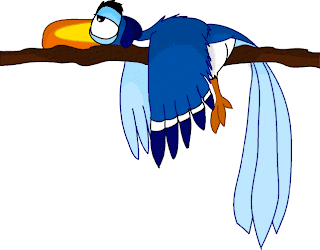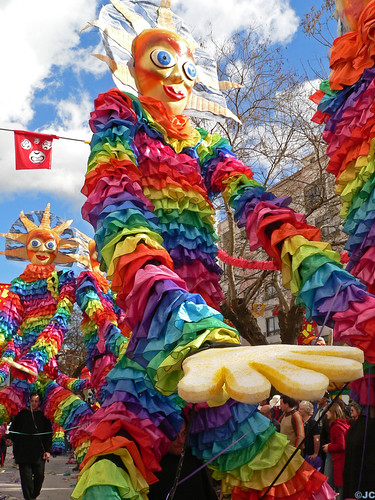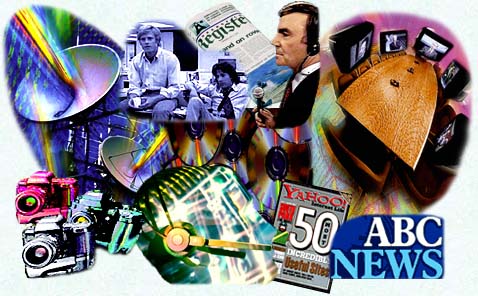I have been very busy preparing and correcting students' last tests (written, listening and oral tests) and concluding the evaluation process.
After arriving from school, all the time I have is dedicated to correcting students' tests and assignments.
I am totally exhausted.
I don't even have time to blog.
With this blog I intend to help students improve their English skills. However, I will write a little about Portugal. I love the English language, but I am also very proud of my mother tongue and of my cultural heritage.
Thursday, March 31, 2011
Thursday, March 24, 2011
The internet and the other mass media!
How different is the internet from the other Media?
Besides allowing quick or instant access to all sorts of information, data and entertainment, it also connects the entire world together. In short, people can be accessible anywhere and at any time.
Moreover, the internet allows people to play a much more active role and it is much more convenient for them.
Finally, we have access to all media in one! If we have an internet connection, we can have access to all the other media online.
What are your predictions for the future?
Will the internet cause the death of the other Mass Media?
Or
Will the other mass media be able to innovate and keep their audiences/readership?
Besides allowing quick or instant access to all sorts of information, data and entertainment, it also connects the entire world together. In short, people can be accessible anywhere and at any time.
Moreover, the internet allows people to play a much more active role and it is much more convenient for them.
Finally, we have access to all media in one! If we have an internet connection, we can have access to all the other media online.
What are your predictions for the future?
Will the internet cause the death of the other Mass Media?
Or
Will the other mass media be able to innovate and keep their audiences/readership?
Friday, March 18, 2011
The evolution of the mass media
We have been talking about the evolution of the mass media throughout the times till the present
In order to give my students background information about this topic, I prepared a powerpoint presentation
I had to scan through innumerous sites so as to find the most accurate information. Different sites show different dates, so we never know which site is right and which site is wrong.
I enjoyed doing this and I hope this can be useful to my students and to anyone in the blogosphere.
Sorry: I couldn't upload the powerpoint presentation. Can you help me?
In order to give my students background information about this topic, I prepared a powerpoint presentation
I had to scan through innumerous sites so as to find the most accurate information. Different sites show different dates, so we never know which site is right and which site is wrong.
I enjoyed doing this and I hope this can be useful to my students and to anyone in the blogosphere.
Sorry: I couldn't upload the powerpoint presentation. Can you help me?
Tuesday, March 8, 2011
Carnival in Portugal
Carnival is synonymous with joy, fun, laugh, trick and satire. People throughout Portugal celebrate it with great enthusiasm and good-humour. There are great parades in many Portuguese cities, where thousands of people can be seen, either participating or enjoying the view. Each city has its own traditions and customs, which make part of the country's history.
People often dress up or masquerade during the celebrations and pretend to be someone new and different. In many street celebrations, lots of floats with political or social message can also be seen.
Carnival is considered a time of excesses and fun. It occurs immediately before Lent, a period of fasting and penitence for the Christian communities. It is believed that Carnival started in Europe in the eleventh century, and spread to other continents with the help of emigrants.
The best-known Carnival in the World takes place in Brazil. Samba is a typically Brazilian dance, which was popularized by carnival. In Portugal we can already see many features of the Brazilian carnival, such as samba schools and samba dancers.
After three days of celebrations, it’s time to return to daily’s life routine and hope for another carnival.
People often dress up or masquerade during the celebrations and pretend to be someone new and different. In many street celebrations, lots of floats with political or social message can also be seen.
Carnival is considered a time of excesses and fun. It occurs immediately before Lent, a period of fasting and penitence for the Christian communities. It is believed that Carnival started in Europe in the eleventh century, and spread to other continents with the help of emigrants.
The best-known Carnival in the World takes place in Brazil. Samba is a typically Brazilian dance, which was popularized by carnival. In Portugal we can already see many features of the Brazilian carnival, such as samba schools and samba dancers.
After three days of celebrations, it’s time to return to daily’s life routine and hope for another carnival.
Friday, March 4, 2011
Today's Mass Media
We have started block 3: Mass Media and global communication.
Firstly, students identified the different mass media: television, radio, print media/press and internet.
Then, we talked about the purposes of the Mass Media. Below you can find some examples.
• To inform:
• To entertain;
• To educate;
• To sell/ advertise;
• To call people’s attention to a certain problem/ situation;
• To promote social change.
We also considered some pros and some cons of the Mass Media.
Pros
• Good source of entertainment, information, knowledge, culture;
• Quick and/or instant access to updated information;
• Portability;
• Company;
• Way to relax and relieve stress;
• Possibility of reaching anyone anywhere (internet).
Cons
• Invasion of people’s privacy;
• Audience war and the lowering of standards;
• Censorship;
• Manipulation of information;
• Exploitation of people's feelings;
• Abuse of shocking images;
• Violence;
• Sedentarism and obesity;
• Cyberbulling and identity theft (internet).
We also read a text called- young people, youth TV- and did several reading comprehension exercises on it. Then we did many vocabulary exercises related to the topic.
As for grammar, we have been talking about relative clauses.
Firstly, students identified the different mass media: television, radio, print media/press and internet.
Then, we talked about the purposes of the Mass Media. Below you can find some examples.
• To inform:
• To entertain;
• To educate;
• To sell/ advertise;
• To call people’s attention to a certain problem/ situation;
• To promote social change.
We also considered some pros and some cons of the Mass Media.
Pros
• Good source of entertainment, information, knowledge, culture;
• Quick and/or instant access to updated information;
• Portability;
• Company;
• Way to relax and relieve stress;
• Possibility of reaching anyone anywhere (internet).
Cons
• Invasion of people’s privacy;
• Audience war and the lowering of standards;
• Censorship;
• Manipulation of information;
• Exploitation of people's feelings;
• Abuse of shocking images;
• Violence;
• Sedentarism and obesity;
• Cyberbulling and identity theft (internet).
We also read a text called- young people, youth TV- and did several reading comprehension exercises on it. Then we did many vocabulary exercises related to the topic.
As for grammar, we have been talking about relative clauses.
Subscribe to:
Comments (Atom)




